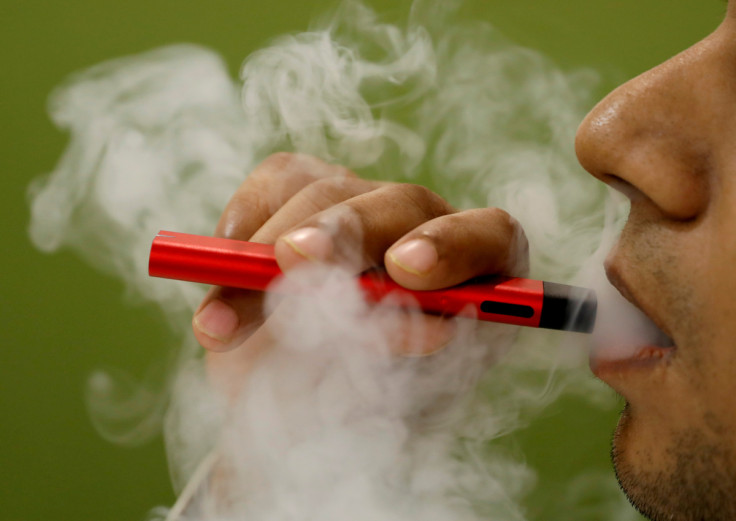Vape Marketing Claims of Being '95% Safer' Than Cigarettes Spurs Concern as Youth Vaping Rates Rise
Public health campaigns and messages highlighted that vaping could be a viable option for those struggling to quit smoking through other methods.

In a surprising turn of events, the vaping industry's assertion that their products are '95% safer' than traditional cigarettes, intended to appeal to adult smokers looking to quit, has inadvertently contributed to a rise in youth vaping rates, according to Dr McKean, the vice-president for policy at the Royal College of Paediatrics and Child Health.
In 2015, the UK's public message regarding vaping was largely centred on harm reduction and the potential benefits of electronic cigarettes (e-cigarettes) as a less harmful alternative to traditional tobacco smoking.
E-cigarettes were promoted as a tool to help smokers quit their tobacco habit. Public health campaigns and messages highlighted that vaping could be a viable option for those struggling to quit smoking through other methods.
Health authorities in the UK, including Public Health England (PHE), also emphasised that e-cigarettes were estimated to be around 95 per cent less harmful than traditional cigarettes and advised consumers to purchase e-cigarettes and e-liquids from reputable sources to minimise potential risks associated with low-quality products.
However, in an exclusive interview with the BBC, Dr McKean expressed concern over the prevalent use of vapes in the youth as young people are taking up vaping because they see it as risk-free.
He said: "Vaping is not for children and young people. In fact, it could be very bad for you. Vaping is only a tool for adults who are addicted to cigarettes."
The report underscored how the vaping industry's marketing strategy, which focuses on harm reduction compared to cigarettes, has had the unintended effect of attracting a younger audience to vape products.
Dr McKean believes that the 95 per cent safe messaging was "a very unwise thing to have done and it's opened the door to significant chaos" as the "switch to vape" message created the unintended consequence of motivating children to take up e-cigs.
Professor Ann McNeil, one of the co-authors of the original 2015 report, shared that the message at the time was constructed based on the available literature and ingredient lists of vapes at the time. She said: "It was never intended to communicate that they're safe - it was intended to say there is a big difference in the harms."
Like cigarettes, selling vapes to youth aged under 18 is against the law, but data suggests that the number of underage vape users is increasing. According to a survey carried out by the Office for National Statistics in 2022, more than one in 10 people aged 16 to 24 said they were daily or occasional users.
This unintended outcome has sparked calls for stricter regulation of vaping products and marketing campaigns, particularly those that may appeal to children. The UK government is considering imposing stricter restrictions on advertising vaping products.
The latest UK update on vaping and health outlines "a small fraction" of the risks of smoking and places stress on underlining the message that vaping is not risk-free, particularly for people who have never smoked before.
As vaping is a relatively new practice, the long-term effects or risks of vaping are unknown and still need to be studied. Nicotine dependency from vaping is also a significant risk as well as the possible correlation of different vape flavourings with other health issues.
As experts and officials grapple with this issue, it remains to be seen how the vaping industry will adapt its marketing strategies and how governments will respond to safeguard the health of the nation's youth.
Prime Minister Rishi Sunak recently exclaimed that it was "ridiculous" that vapes are now being marketed to appeal to children when they were supposed to be used by adults giving up smoking.
He is expected to publicise new policies aimed at catching promoters of youth vaping in England. Meanwhile, the Scottish and Welsh governments have already called for a ban on disposable vapes.
© Copyright IBTimes 2025. All rights reserved.






















